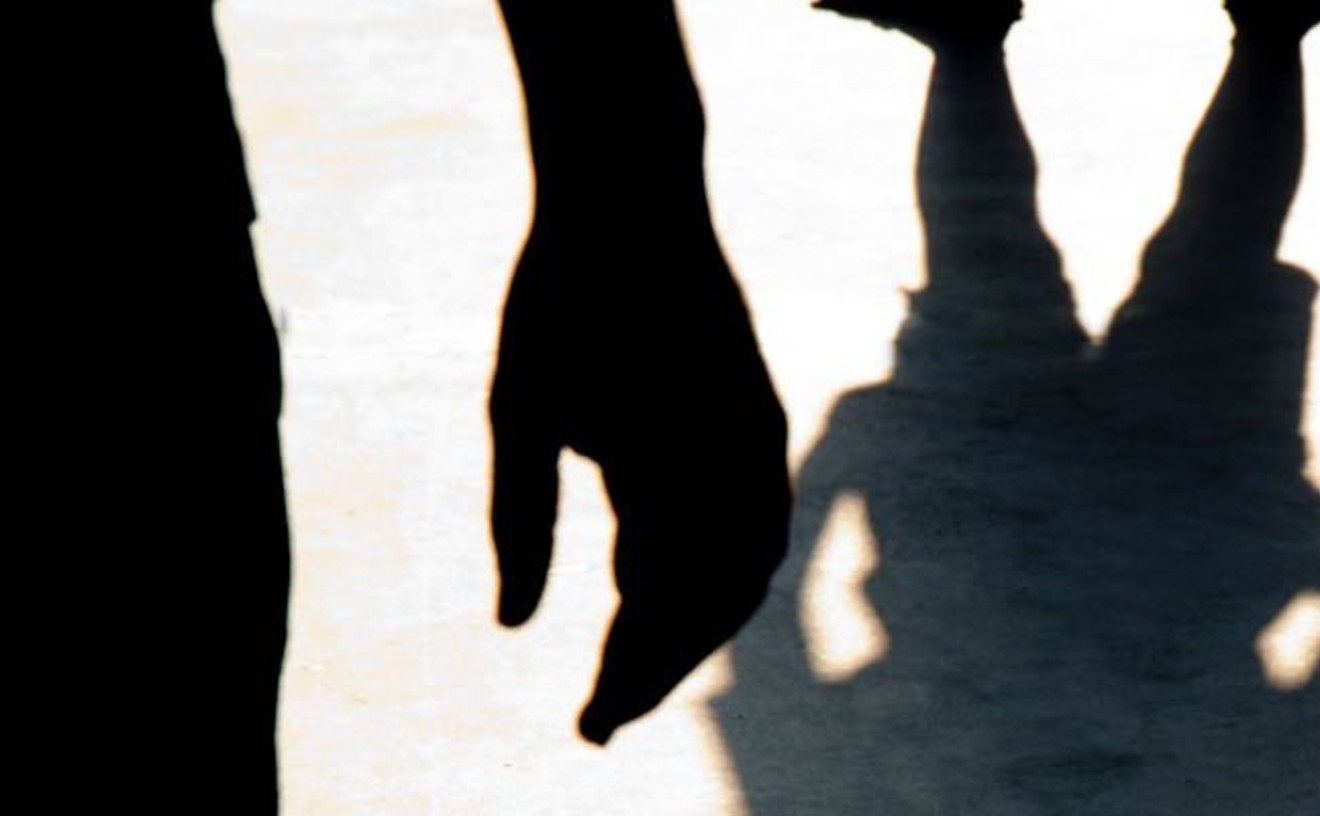Morton Brooks, who is running as a Libertarian for a state representative position in the sixth district, has been drumming up support with help from the local Libertarian Party and others to demand that the commission stop excluding third parties -- especially leaders like Gary Johnson, the Libertarian presidential candidate, who, in his view, has innovative ideas that neither Obama nor Romney has proposed.
"We don't have freedom in this country if ideas are being suppressed," Brooks says. "To me personally, I look at it as a two-party dictatorship. They are like two competing businesses, and each one has 50 percent of the business." When we interviewed Johnson during a visit to Denver in June, he told us that if he was given a chance to participate in the national debates, he felt confident he would take a significant number of votes away from both Obama and Romney -- maybe even enough to win.Today, representatives from the Libertarian Party in Colorado will be on site at the University of Denver to promote Johnson, says Jeff Orrok, the state party chair.
"If you're a candidate that can get on enough ballots in enough states...you have a chance of getting 270 electoral votes," Orrok says. "That in and of itself is enough of a hurdle that should qualify you for the debates, flat-out."
In fact, Johnson and his running mate have filed a lawsuit in California (it's on view below) against the Commission on Presidential Debates and the Republican and Democratic national committees. It argues that the exclusion of the third party from the televised debates constitutes a violation of United States anti-trust laws. The suit reads, in part:
Plaintiffs thus bring this action to prevent injury to themselves and to the American electorate and to foster competition in the marketplace of both ideas and of those seeking to provide services to the nation in the two highest offices of the land.Brooks considered filing a similar lawsuit locally, but decided he didn't have enough time. He did, however, inspire two religious leaders to urge its members to consider including third parties.
Brian Field, a rabbi with Judaism Your Way, a Denver-based Jewish outreach nonprofit, wrote in a letter dated August 24. It's on view below, but here's an excerpt:
At a time in our nation's history when paralyzing gridlock between the two major parties is becoming the norm, it would seem that the way to provide the best possible information to viewers and listeners would be to include additional perspectives beyond the two established parties. I urge you to change your candidate selection criteria so that the national presidential debates offer a broader spectrum of ideas to the voters of our country. The health of our democracy is at stake.Continue for more about the debate protests. Field says he is speaking on behalf of himself and not his organization. He adds that he is simply calling for more inclusiveness, rather than supporting a specific party or agenda. "I wasn't writing as a supporter of the Libertarian Party, or as a rabbi supporting any party for that matter," he says. "In the spirit of maximizing the legitimate voices that get to participate in the...national conversation...I said I'd be happy to write a letter."
He adds, "Democracy is most healthy when it doesn't restrict voices...and when it supports the broadest inclusion of voices in our conversation about the nation's future."
Brooks also encouraged Michael Walker, a senior pastor, at Church In The City, Beth Abraham, to send a letter. Walker's letter is below as well. He wrote, in part:
Immediate action must be taken to change the criteria prohibiting other political parties from participating in all presidential debates. For the sake of a true moral democracy, it is imperative that other party's ideas be offered to the American voters. Other parties deserve to partake in the presidential debates; thereby offering American voters other ideas, thoughts, philosophies and ideologies to consider other than the platforms of the Democrats and Republicans.While debate openness may seem like an unusual cause for a religious leader to take up, Field says he thought it made sense for him to weigh in.
"As a rabbi, I can lift up a specific value -- in this case, inclusion -- and offer that perspective," he says. "In general, that feels like a legitimate exercise of my position."
Brooks says he got interested in running for a state representative seat because he wanted to spread a message of freedom and personal responsibility. He doubts he'll win the election -- he doesn't have a web page or Facebook presence, and at this point, he's turned down contributions. And recently, he has focused a lot of his energy on spreading the word about the debate's exclusion of third-party ideas, which he views as a civil rights offense.
"Ideas are being suppressed. We have a scam going on," he says. "The vast majority of people don't know about the other parties and they just assume that this is all legitimate. And it's not."
Orrok says that the efforts of those support Johnson are challenged by the fact that they get very little media attention.
"We just seemed to be locked out," he says. "It's just so hard to get any kind of national attention. They just completely ignore us."
We reached out to representatives from the Commission on Presidential Debates this morning and will update if we hear back.
Continue for the full lawsuit in California and full letters from the religious leaders. Here's the lawsuit. Libertarian Lawsuit California 9-21-12
Here are the full letters.
Libertarian Letter From Rabbi Brian Field
Libertarian Letter From Michael Walker
More from our Politics archive: "Photos: Inside the University of Denver's presidential debate swag bag"
Follow Sam Levin on Twitter at @SamTLevin. E-mail the author at [email protected].










